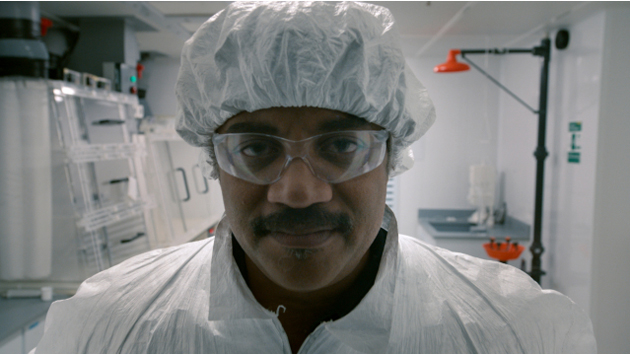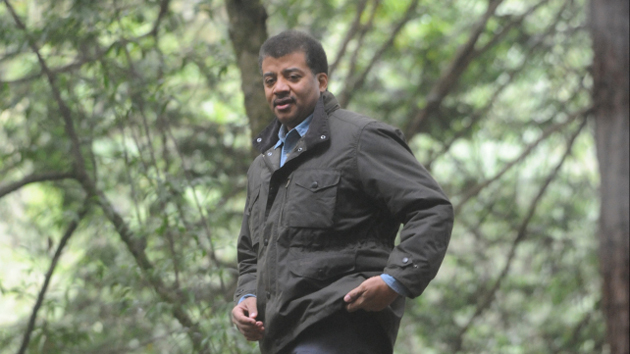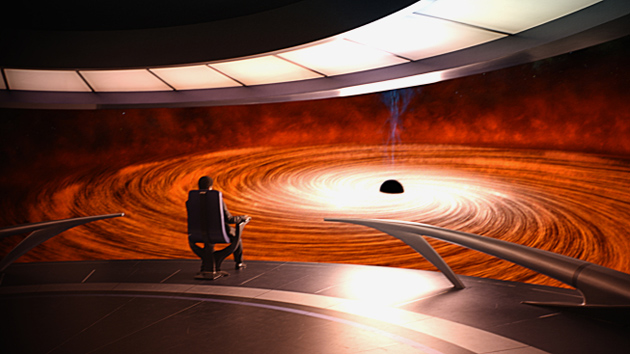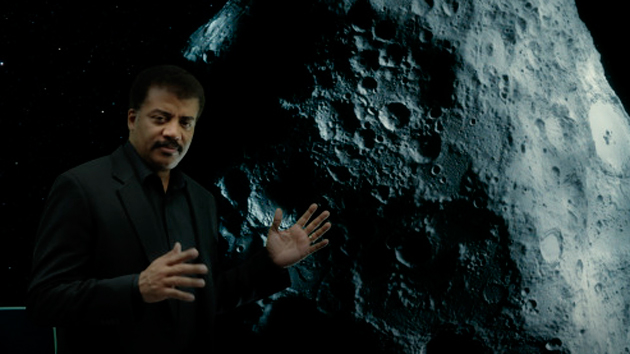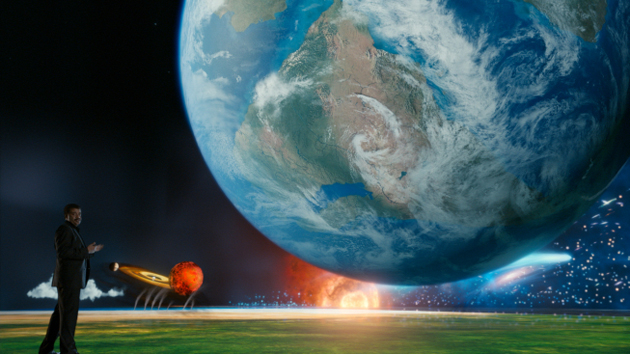
Fox/National Geographic
If you’ve been reading my semi–regular dispatches about the Fox and National Geographic series Cosmos—far and away the most rational show on television—then you know that for some time, I’ve been not-so-subtly predicting that the program was going to tackle the scientific issue of our time, climate change. It seemed to me that in order to be true to the legacy of Carl Sagan, a man who epitomized the quest to use science to solve humanity’s problems, you simply couldn’t avoid this topic.
And sure enough, last night, it happened (watch here).
Neil deGrasse Tyson and Cosmos got into the climate issue in their typically expansive way: By surveying the state of the Earth in an array of ancient periods and looking at the dramatic transformations it has undergone due to forces ranging from continental drift, to asteroid impacts, to ice ages. Rearrangements of continents, waves of extinctions, and dramatic fluctuations in climate were the norm, not the exception, throughout this calamitous past.
And some of these dramatic changes set in motion where we are now. For instance, surveying the Carboniferous period of the planet’s history 300 million years ago, Tyson explained how the development of plant life on Earth, and especially trees, greatly changed its atmosphere, producing a great deal more oxygen. Yet at the time, Tyson noted, fungi and bacteria didn’t have any means of consuming these trees when they died. So, they just gradually sunk under the mud and soil.
“Eventually, there were hundreds of billions of trees, entombed in the Earth,” explains Tyson. “Buried forests, all over the Earth. What possible harm could come from that?”
The answer is a great deal, once the carbon content of these deposits of former life was unleashed into the atmosphere. And that’s why, while we’ve been living in a period of climatic optimum—one that made human civilization possible— for the last 10,000 years or so, we’re about to seriously mess it up. So begins Tyson’s climate dirge:
We just can’t seem to stop burning up all those buried trees from way back in the carboniferous age, in the form of coal, and the remains of ancient plankton, in the form of oil and gas. If we could, we’d be home free climate wise. Instead, we’re dumping carbon dioxide into the atmosphere at a rate the Earth hasn’t seen since the great climate catastrophes of the past, the ones that led to mass extinctions. We just can’t seem to break our addiction to the kinds of fuel that will bring back a climate last seen by the dinosaurs, a climate that will drown our coastal cities and wreak havoc on the environment and our ability to feed ourselves. All the while, the glorious sun pours immaculate free energy down upon us, more than we will ever need. Why can’t we summon the ingenuity and courage of the generations that came before us? The dinosaurs never saw that asteroid coming. What’s our excuse?
That’s a pretty strong statement, made all the stronger by the mega-scale perspective on the Earth that impels it. And thus, Cosmos continues to deliver on the greatest hopes of its fans and, apparently, its creators: To use a mass media platform to, at last, take on science rejectionism and set the deniers straight.
On our most popular episode of the Inquiring Minds podcast, Tyson explained why he doesn’t debate science deniers, and much more. You can listen here (interview starts around minute 13):

